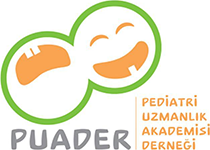I am a pediatric intensive care specialist who experienced the earthquake disasters in Malatya province on February 6, 2023, which affected a total of 11 provinces in Türkiye, causing great destruction and losses. Although we experienced apocalyptic earthquakes and experienced serious fear, my pediatrician colleagues and I started to welcome patients coming from the rubble in the pediatric emergency department immediately after the first earthquake with a sense of duty and mobilization without thinking about ourselves, our destroyed houses and the shock we experienced, primarily because we are physicians. In addition to the horror of the event itself, the fact that our patient group consisted of children, the most innocent group of living beings affected by this disaster, created an emotional burden that was also very difficult for us to manage.
On February 6, in the second earthquake which occurred in afternoon, we had to evacuate our pediatric intensive care unit (PICU) at Malatya Training and Research Hospital because our hospital was damaged. We could not dispatch our patients to neighboring hospitals because our communication was cut off with 1-1-2 (Emergency call center system in Türkiye), in addition, the highways were damaged, and all existing ambulances were carrying patients from the rubbles.
As a health professional who has experienced the earthquake, continuing to work in a disaster environment is very challenging both emotionally and physically. The magnitude of the earthquake’s devastation, the fact that all provinces that could bring help from the surrounding areas in the acute period were highly affected by the earthquake, and the destruction of highways and airports caused us to care for patients in the region for days without access to humanitarian needs such as food, drinking water and clean toilets. Moreover, the earthquakes we experienced were 7.4 and 7.6 magnitude earthquakes, the most destructive terrestrial twin earthquakes in the literature, followed by almost 10,000 aftershocks. What I will never forget as a physician during the earthquake process is a moment when my nurse and I continued to insert a hemodialysis catheter with my nurse who continued to assist me by crying while everyone was screaming and running away from the emergency room in a 5.8 magnitude aftershock that happened while I was inserting a hemodialysis catheter in this case.
Consequently, the timing of major disasters such as earthquakes is unpredictable, but every aspect of preparedness is necessary to minimize the devastating impact. I wish that this disaster would be the last earthquake in our country, but unfortunately this would be a dream for an earthquake country like ours. I hope that the destruction will be minimized with the legal regulations and measures to be taken. It is very important that every hospital, every unit has emergency disaster plans and that the team acts within this plan in similar emergency disaster situations.

